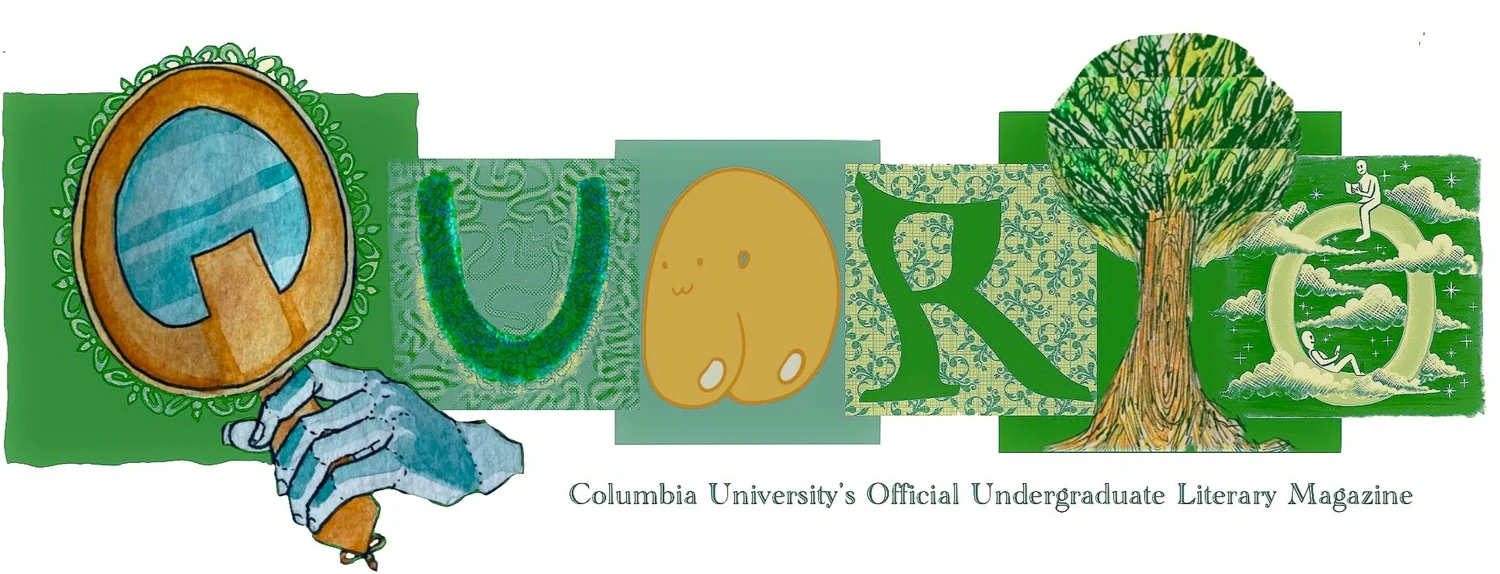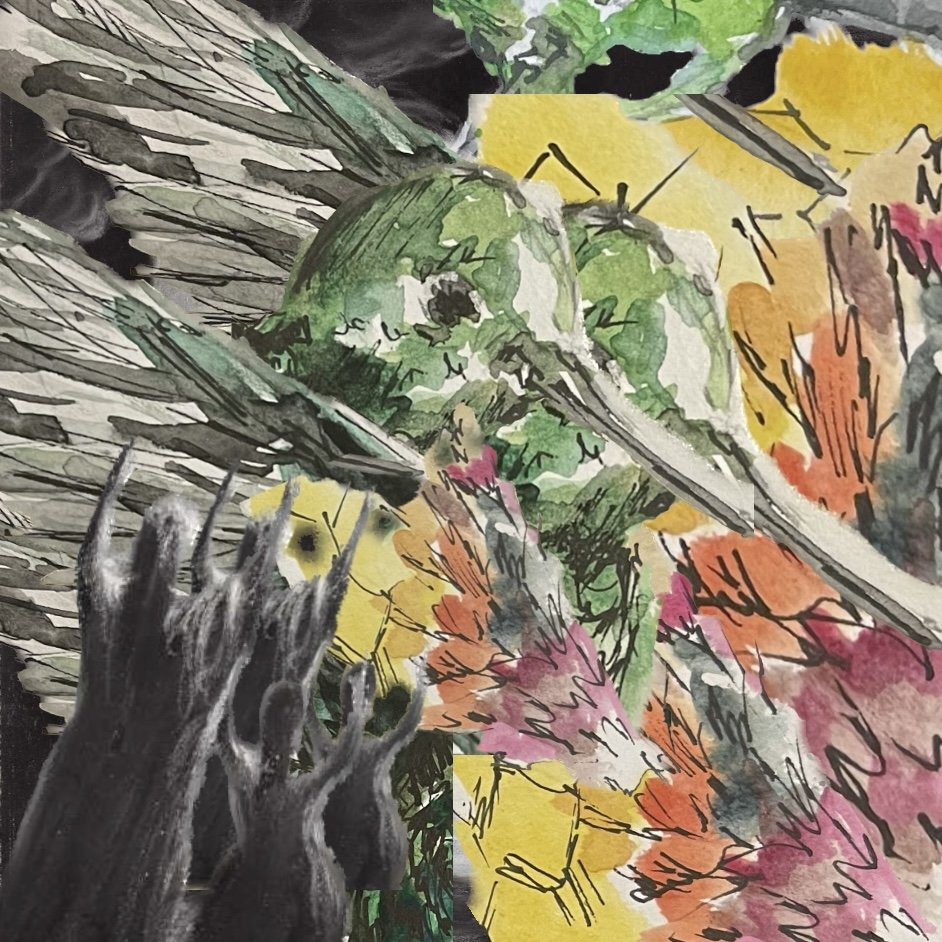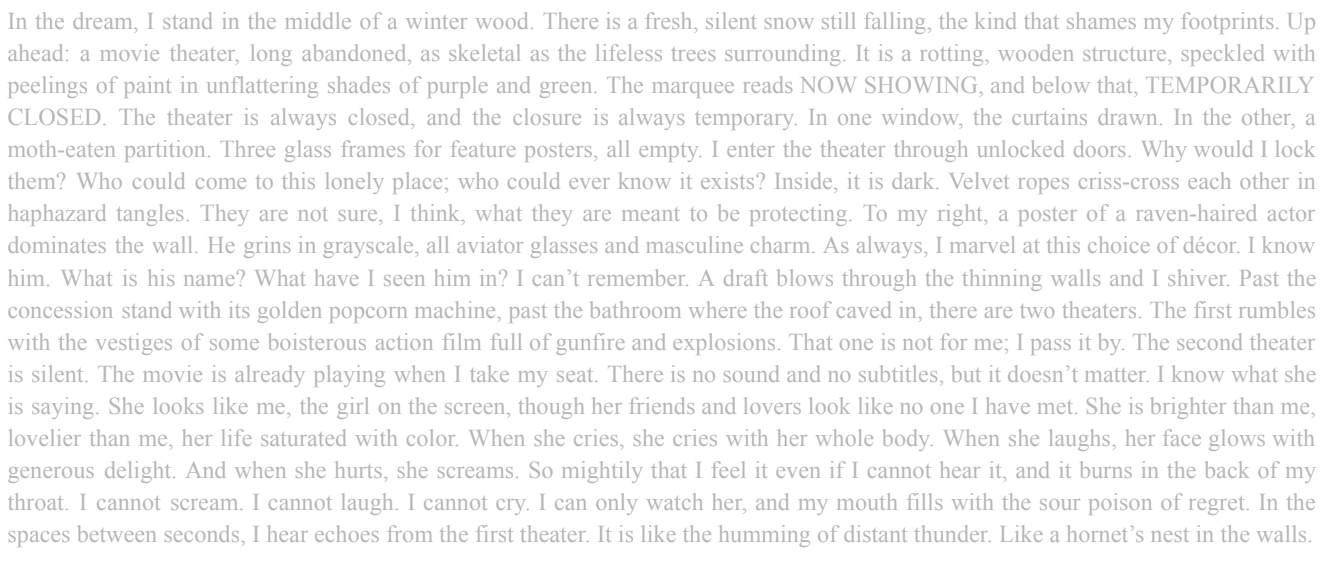Crayola Crayons manufacture 120 colors,
and a child’s ability to dream is hindered here.
He or she finds themself drawn within
these bounds, their imagination detained to:
Goldenrod. There is the absence of night-time
in Fairfax, California, so when her mother does
not come home, she can pretend it’s been
one long day, where the valley never blinked.
It stared her right in the eye, Goldenrod, fitted
within the dust of its broad and trodden-down
shoulders. To tell this story is to conjure a photo,
without wind. Because of her, Crayola invented
...
Midnight Blue. In Russian, “blue” is too broad.
Their tongue insistent on the binary between “siniy”
(dark blue) and “goluboy” (light blue)1. When we ex-
pand Crayola Crayons, we expand linguistics itself.
Midnight Blue is a color without company, it oozes
like watercolor, like watermarks on a page—the
sound of rustling in the garden behind my house,
which is different than Sky Blue: when a good thing
Happens, and we cannot trace back why it constricts
us. The opposite of tears falling freely, as the clock
strikes Midnight Blue. Crayola Crayon places
a vocabulary in our hands. Might not we shatter like
...
Antique Brass, since the Socratic Method was
designed for men2. A long, long time ago, when
coloring books were regulated. When tests were
taken in black & white. Before a girl could turn in
A poem as an argumentative speech. And say here
is my campaign for the expansion of Crayola Crayons,
as a legacy. May someone have the language of forget-
me-not-red & broken-by-begonias & tearless ebony &
always yellow to express herself in such a way
Long after me.
Author’s Note: Goldenrod, Midnight Blue, Sky Blue and Antique Brass are all real Crayola Crayon colors.
1
Winawer, J., et al. “Russian Blues Reveal Effects of Language on Color Discrimination.” Proceedings of the National
Academy of Sciences, vol. 104, no. 19, 30 Apr. 2007, pp. 7780–7785, www.pnas.org/content/104/19/7780,
10.1073/pnas.0701644104. Accessed 18 Nov. 2019.
2
Gersen, Jeannie. THE SOCRATIC METHOD in the AGE of TRAUMA.
Ashley (she/her) is a senior in Columbia College studying English and political science. Growing up meant realizing that she has a co-dependent relationship with summer and semi-colons. You can find her on Instagram @ashley.yung





















